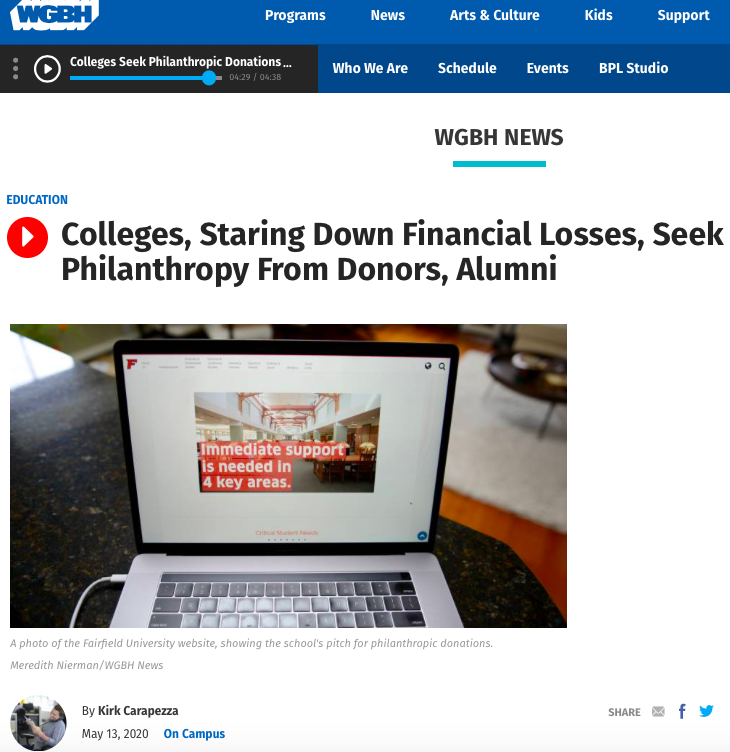I was honored to participate in an interview by NPR higher education reporter Kirk Carapezza on WGBH on a new fundraising approach in higher education— asking donors/alumni to cover operating losses. In theory, I’m not opposed to the approach for two reasons:
- The programs and offerings that are likely cut when budgets are constrained are those that alumni and donors like to support. These include scholarships (financial aid) and student affairs programming for traditions and key events in the academic year. Coincidentally, continuation of these hallmark events also generates the greatest affinity among alumni and donors.
- We won’t know if there is an interest in a new fundraising approach unless we ask—and asking is key! I’ve ready many articles and feasibility studies that show that alumni and donors haven’t given solely because they were never asked.
And while I shared my opinions with Kirk, he shared a workaround for recording radio-worthy audio from home. Traditionally, NPR affiliates like for interviewees to record responses in studios, but even interviews are different during quarantine.
Kirk provided the following recording protocol for anyone asked for a radio interview during the pandemic:
Recording yourself is easy.
1- Find quiet space that doesn’t echo too much in your home, office or home-office… and then connect with a reporter via landline or Zoom.
2- Open the VoiceMemos app on your iPhone or any recording app on a smartphone.
3- After you hit the record button, hold your iPhone/smartphone like a microphone, speaker end up, about 6-10 inches directly below your chin.
Tip: Pretend you are singing karaoke or reporting for the nightly news. Look straight ahead, do not talk directly into the microphone.
4- When you’re done, hit the red record button to stop. The recording will appear as ‘New Recording 1’ for your address/location.
5- Tap it to expand and tap the three blue dots to share via email or text (the icon that looks like a document with an arrow pointing up).
That’s it!


So, should you find yourself asked for your opinion or expertise for a radio format– even while quarantined– be sure to employ Kirk’s guidelines and please listen to the piece to hear which institutions are fundraising to fill their current budget holes.
